 The United States allowed Ukraine to launch Himars missile launchers into Russian territory. Photo: Sergey Mikhalchuk/Global Images Ukraine via Getty Images
The United States allowed Ukraine to launch Himars missile launchers into Russian territory. Photo: Sergey Mikhalchuk/Global Images Ukraine via Getty Images
Ukraine's battle for survival has so far barely featured in the British election campaign. But as Rishi Sunak flies to Italy to join other world leaders at the G7 summit on Thursday, this increasingly bloody war in the heart of Europe will be high on the agenda.
The sinister figure of Vladimir Putin will be cast challenge the long shadow over the top of the seaside resort of Fasano on the heel of Italy.
He is threatening to retaliate against NATO countries now that President Biden has followed Britain's lead in giving Ukraine permission to use US-supplied Himars missiles against targets inside Russia.
Last Thursday, Putin issued his most explicit warning yet to NATO: “This is a very serious and very dangerous step. If they consider it possible to deliver such weapons to a combat zone to strike our territory and create problems for us, then why don’t we have the right to supply weapons of the same type to some regions of the world, where they can be used to strike sensitive targets of countries who inflict this on Russia?
With a typical threat, Putin added: “We will think about it.”
For months, Ukrainians have been desperately trying to stop Russian bombing of Kharkiv and other cities, which have been hit by a hail of missiles launched from across the border.
Once the ban on missile launches into Russia was lifted, a Khimari strike across the border reportedly destroyed an advanced air defense system in Belgorod. The Russians claimed that civilians were also killed, although there was no independent confirmation.
White House national security spokesman John Kirby has made it clear that Ukraine can now use US equipment to «shoot down Russian aircraft that pose a looming threat» in Russian airspace .
A tougher stance from Washington would make it more difficult for Russian aircraft to fire missiles at Kharkov with impunity, possibly reducing the civilian death toll from incidents such as last month's destruction of a large home goods store full of shoppers. In recent days, Kyiv has also come under attack from missiles and drones.
This shift in Biden administration policy has increased pressure on NATO allies to follow suit. The British have always been hawkish — last year they gave Ukraine significant leeway in the use of its Storm Shadow missiles — but some other European countries are more cautious.
President Macron recently changed his role from peacemaker to warrior. But German Chancellor Olaf Scholz has so far refused to supply long-range Taurus missiles to Kyiv, allegedly due to fears that they will be used against Russia and thereby escalate the conflict.
Last month, Scholz changed his mind slightly under the influence of Macron's visit, saying Ukraine has the right to defend itself «according to international law» by any means necessary. However, he is unwilling to give up his image as «chancellor of peace» for fear of losing his post in next year's federal elections.
In the G7, Scholz could find himself in the minority among his more hawkish partners. and may be relying on the support of his mistress, Italy's right-wing Prime Minister Giorgia Meloni, who is also wary of «provoking» Putin.
Heavy losses
The G7 summit will inevitably look at what is actually happening in the war. .
According to the Ministry of Defense, since the start of the offensive on Kharkov in May, Russia has been losing an average of 1,200 people per day. The Ministry of Defense estimates that total Russian casualties in the war now exceed 500,000, which is a significant loss for men of fighting age.
The use of Khimars to destroy targets inside Russia could significantly change the course of the war.< /p
Since last fall, the United States has been supplying Ukraine with ATACMS missiles. They can be launched by Himars missiles and have a range of up to 300 km, allowing Ukrainian forces to destroy Russian command and control centers, strategic air bases and many other military installations.
Until now, Ukraine has only used ATACMS-equipped Khimars to attack targets in occupied Ukraine. Now that Russian territory is potentially vulnerable, Putin and his generals are clearly alarmed. Hence the new threats of retaliation against NATO countries.
Still, Putin is recruiting hundreds of thousands more troops to replace the dead, while his war economy follows the Stalinist model of low-cost, high-volume production.
Mikhail Khodorkovsky, an exiled former oligarch who is now Putin's main opponent, claims that Russia produces standard 155mm artillery shells for a tenth of what they cost in the West. Sanctions are working, but not completely: Russia still imports weapons and military equipment through Central Asia, Turkey and China.
It is hoped the G7 will finally give the green light to unfreeze up to £250bn of seized Russian assets to support Ukraine. However, even if such sums do materialize, they will be quickly absorbed by the ongoing costs of the war, not to mention post-war reconstruction.
Although the latest Russian offensive failed to capture Kharkov, the damage done to Ukrainian infrastructure in recent months , colossal.
Just last month, 80% of thermal and hydroelectric power plants were disabled. Winter is closer than you might imagine, and the country is now dependent on three remaining nuclear power plants.
Zaporozhye, the fourth (and largest in Europe), is occupied and controlled by Russia.
The most optimistic military scenario for Ukraine is that its armies, reinforced with new American and European weapons and ammunition, will be able to withstand the Russian summer attack expected at any moment.
So far, General Alexander Syrsky, whom Zelensky appointed to replace popular hero General Zaluzhny last February, has shown himself to be cool and effective under fire. Empty talk in the spring about a coup against Zelensky has subsided.
However, Ukraine continues to suffer heavy losses that it cannot afford indefinitely.

Defense can be as costly as offense in artillery-dominated trench warfare, such as first seen in World War I and now in Ukraine.
In the campaign that followed D-Day in 1944, Allied air superiority meant that the defending Germans not only lost the Battle of Normandy, but also lost twice as many men. In Ukraine, the Russians not only control the sky, but can also afford higher casualties in a war of attrition.
How can Ukraine change the war's grim calculus?
There is only one option: one answer. NATO membership will change everything in one fell swoop.
Zelensky devotes all his efforts to this goal — with some success. In April, NATO Secretary General Jens Stoltenberg visited Kyiv and said Ukraine was on an «irreversible path to NATO membership.»
He also proposed a «large, multi-year financial commitment» from NATO members instead of the previous «short-term, special support. Zelensky's diplomatic offensive appears to be gaining momentum ahead of not only this week's G7 meeting, but also an even more important NATO meeting. summit in Washington on July 9.
This meeting is being billed as the most significant for a generation — a veritable baptism of fire for the new British Prime Minister, who will be elected just five days before.
Then Zelensky stumbled upon the main stumbling block: Joe Biden.
 Biden has offered Zelensky additional help, but will not support Ukraine's application for NATO membership. Photo: LUDOVIK MARIN/AFP via Getty Images
Biden has offered Zelensky additional help, but will not support Ukraine's application for NATO membership. Photo: LUDOVIK MARIN/AFP via Getty Images
In an interview with Time magazine, the president stated unequivocally: “I am not ready to support the NATOization of Ukraine.” By way of explanation, Biden added that as vice president, he witnessed «significant corruption» in Ukraine.
By ruling out Ukraine's membership in NATO, Biden is responding to Republican criticism by calming perennial American worries about being drawn in in foreign wars. He and his inner circle, especially National Security Adviser Jake Sullivan, were also likely influenced by Putin's threats.
Many Americans disagree with Biden on this.
His own Secretary of State Antony Blinken said in April, “Ukraine will be a member of NATO.”
Nikki Haley, Trump’s former primary rival for the Republican nomination, says the same. But the upcoming presidential election will almost certainly feature two candidates, Trump and Biden, both of whom would veto Ukraine’s NATO membership.
It’s hard to imagine an outcome that offers any hope of ending the Ukrainians’ nightmare.
Biden and Zelensky met in Paris on Friday. As an olive branch, the US President offered his Ukrainian counterpart a new package of military aid worth $225 million. The talks were cordial, but on the key issue of NATO membership the two men remained distant.
Eerie silence from the West
In response to the greater leeway given to Ukraine by most of its allies to launch missiles at Russia, Putin increased the rattling of nuclear weapons.
A few days ago, he warned Europeans with “small, densely populated territories” to “keep it [i.e. nuclear threat] before talking about a strike on Russia.”
Last weekend, Paris was the scene of a creepy stunt designed to prove that Putin was not bluffing.
The hornbeams are draped. A French flag with the inscription “French soldiers of Ukraine” was left near the Eiffel Tower. Three arrests were made — a Bulgarian, a German and a Ukrainian — but few doubt that Moscow was behind the incident.
The aim was to frighten French public opinion ahead of the upcoming European Parliament elections, in which Marine Le Pen's National Rally is expected to humiliate Emmanuel Macron's Renaissance Party.
 YouGov poll shows Marine Le Pen's party will receive 32% of the French vote in the elections to the European Parliament. Photo: REUTERS/Christian Hartmann
YouGov poll shows Marine Le Pen's party will receive 32% of the French vote in the elections to the European Parliament. Photo: REUTERS/Christian Hartmann
Although the president has raised the possibility of sending French troops to Ukraine, such intervention is fiercely opposed by nationalists.
Right-wing nationalist populists, most of them leaning toward Russia, are expected across Europe. achieve great success in the elections, which conclude on Sunday, June 9. This seismic shift, motivated in part by concerns over immigration, will also form part of the backdrop to the G7 summit.
For Zelensky, this spasm of borderline anxiety is yet another headache. Eight million people left Ukraine in 2022 alone. When 154,000 Ukrainians arrived in the UK two years ago, it was the largest influx of refugees in our history — and they were warmly welcomed. Other countries took far more: Poland took in 2.5 million.
Now Ukraine, whose population has fallen from 45 million in 2014 to less than 30 million today, would very much like to see them return.
< p>The demographic panic that gripped the rest of Europe (too many people) gave way to an increasingly depopulated Ukraine. In the West, Putin's mass abduction of tens of thousands of children from occupied regions — one of his greatest crimes against humanity — has gone largely unrecorded.For Ukrainians, it is strange that their war has disappeared from our history. front pages.
The worst atrocity in Europe since 1945 has overshadowed the humanitarian crisis in the Gaza Strip. It is not Putin, but Netanyahu who now plays the role of enemy number one. There are no mass protests against Russia in Western capitals and university campuses. Instead, there is an eerie silence.
The UK is one of the few countries where public support for Ukraine appears strong. Sir Keir Starmer has vowed to continue the strong pro-Kiev policy laid down by Boris Johnson and maintained under Liz Truss and Rishi Sunak.
But Nigel Farage is challenging the status quo on this issue too. The reform leader appears to agree with his friend Donald Trump that a deal must be struck to end the war immediately, no matter the cost to the Ukrainians.
As for Trump himself, lately he had little to say about Ukraine, concerned with the small matter of his 34 felony convictions in a New York court.
But there is no sign that the former president has changed his mind after boasting last year that if elected he could end the war «in 24 hours» thanks to his relationship with his «friend» Putin.
Trump aides have outlined a possible deal that would leave the Russians in control of occupied and annexed areas of Ukraine, including Crimea and much of the Donbass. Ukraine will lose the chance to join NATO or the EU and will effectively be reduced to the status of a Russian satellite like Belarus.
Moreover, a second Trump presidency would almost certainly result in the US Congress tearing apart Ukraine. military and financial lifeline. Speaker Mike Johnson is a staunch Trump supporter, and MAGA Republicans used their negotiating power in the House to delay the latest relief package by more than six months.
This prospect focused minds in Kyiv, including Zelensky himself. Last week he took a risky step by speculating on what would happen if his worst-case scenario for a Trump victory came to fruition.
In an interview with the Guardian, he insisted that «Ukrainians will not accept» a bad peace deal , imposed by Trump. Without allies, he admitted, Ukraine “with bare hands” will not be able to defeat “multi-million-strong” Russian troops. But, he argues, Putin will not stop at Ukraine — and as a result, Americans will look “very weak.”
“Does he want to be a loser president?” he asked, knowing that this was the worst insult in Trump's vocabulary. Zelensky is essentially warning the Republican presidential candidate that if he leaves Ukraine at the mercy of Putin, he will be remembered as the Neville Chamberlain of the 21st century.
The Ukrainian president will have the opportunity to make his case to G7 leaders at the summit this week. What will Zelensky most likely tell them?
First of all, he will try to refute the assertion that has been widespread in Western media over the past six months that Ukraine is losing the war. Not only is this untrue, but it has the paradoxical effect of making some Europeans and Americans less willing to help his cause.
It is true that Russia, having mobilized its economy and society for all-out war, is pouring resources into the fight on a scale that Ukraine cannot match, and its allies prefer not to.
According to Khodorkovsky, Europe has spent only 0.25% of its GDP on Ukraine since 2022. The US figure is comparatively insignificant.
Therefore, Zelensky's main task is to convince the G7 that aid to Ukraine is available and sustainable — in fact, this is a much more pragmatic choice than abandoning Ukraine and waiting until NATO has to fight Russia directly. .
Biden may be sympathetic to this view, but he has an election to fight and no votes on foreign policy, let alone funding foreign wars. At this moment, the ghost of Trump can be seen at the summit.
 Putin and Trump at the G20 2019 summit: Trump announced his «friendship»; with the Russian leader could help end the war. Photo: Brendan Smialowski/AFP
Putin and Trump at the G20 2019 summit: Trump announced his «friendship»; with the Russian leader could help end the war. Photo: Brendan Smialowski/AFP
However, the idea of the West, of which the United States is an integral part, has been a key part of our mentality for nearly two centuries, and in some respects for more than two millennia.
The defense of Western civilization has been a core part of our identity both sides of the Atlantic, at least since World War I, when the United States intervened to save Europe for the first time in history.
A generation later, our common cause was clearly articulated by Churchill and Roosevelt in the Atlantic Charter before the United States entered World War II—and cemented by the sacrifices made by Allied forces in the European renaissance that began on D-Day. br />
Just as the Nazis waged what Aurel Kolnai called a “war against the West,” and the Soviet Union recruited a global network of anti-Western regimes, Putin now openly declares his hostility to the West.
/>However, Russia's attempt to challenge the most powerful and successful civilization in history seems doomed to failure. From 2022, Ukraine, which until recently was not considered by anyone as part of the West, will quickly fully integrate into its cultural and economic community, as happened with the Warsaw Pact countries after 1989.
Meanwhile, Putin the attempt to build a “borderless friendship” with China, the largest and most formidable of authoritarian powers, appears to have finally reached its limits.
Given the choice between continuing (highly profitable) business with the West and supporting Russia's fossil fuel economy, this is a no-brainer for Xi.
A rallying cry
On the eve of D-Day, one of President Biden's predecessor, General Dwight Eisenhower, sent a message to the Allied Expeditionary Force that it would land on the beaches of France.
In the name of the «United Nations» he wrote: «You are about to go to the Great Crusade that we have been striving for all these months. The eyes of the whole world are on you. The hopes and prayers of freedom-loving people everywhere march with you… The tide has turned! The free people of the world are marching together to Victory!”
Eisenhower had a simpler, if more difficult, task than today's Western leaders.
But the British prime minister can still inspire our allies. It's time to end the silence on Ukraine in our general election campaign. Rishi Sunak should use the G7 summit platform to make a call that would echo Eisenhower's 80 years ago. Zelensky received a standing ovation when he told the French National Assembly on Friday: “Hitler crossed red line after red line.” line. Putin is doing the same.”
Allowing Kyiv to fire missiles at Russia is a necessary step to repel Putin's offensive, but the West must go further.
We must not allow Zelensky's brave nation to be crushed by an evil empire Putin. The time has come to turn the tide by accepting the freedom-loving people of Ukraine as full NATO allies. This is the same great crusade that our ancestors fought and died for 80 years ago.


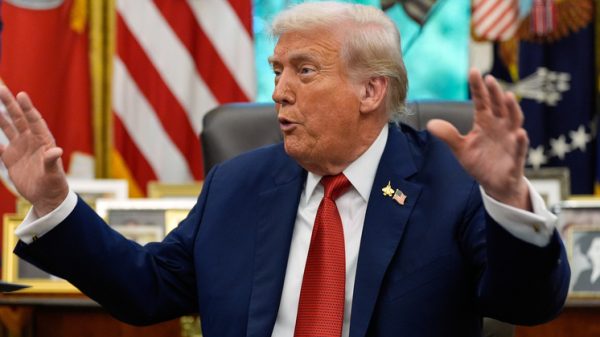






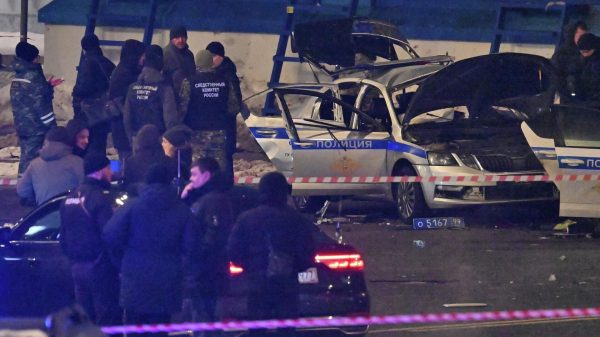
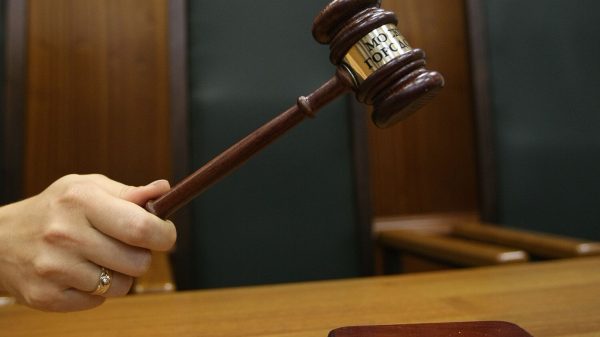
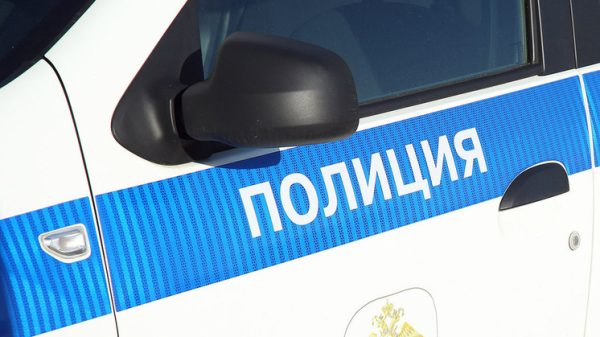








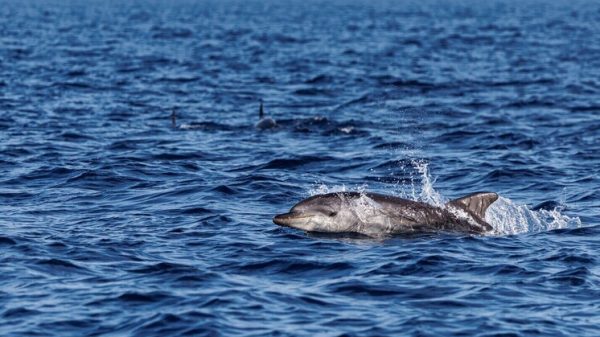


































Свежие комментарии